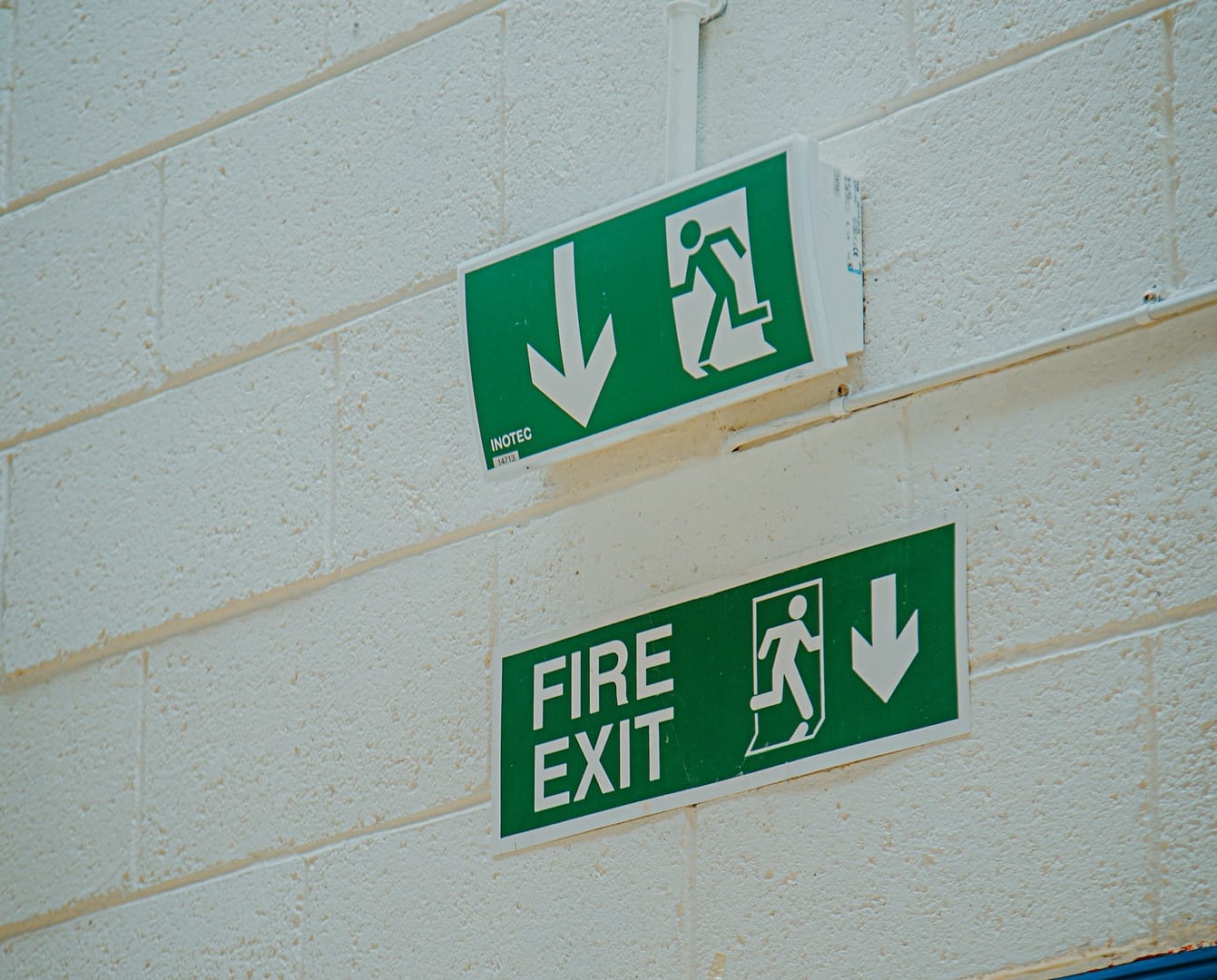In today’s fast-paced and ever-changing world, emergencies and unexpected situations can arise at any moment. Whether it’s a fire, a medical crisis, a natural disaster, or any other unforeseen event, the ability to respond quickly and effectively is paramount. This is where the Importance of Emergency Procedures at work becomes evident. In this article, we will delve into why it is crucial to have emergency procedures in place and what these procedures entail in a workplace setting. We will also delve into the best steps to take when making an accident at work claim.
Emergency procedures at work are vital for protecting employees during unexpected events such as fires, accidents, or chemical spills. If your employer fails to implement or communicate these procedures correctly and you suffer harm as a result, you may be eligible to claim compensation.
Why Emergency Planning Should Never Be Overlooked
Whether you work in construction, retail, or an office environment, every workplace carries risks. Emergencies can happen in an instant—from fires and gas leaks to machinery failures or even acts of violence. This is why having clear, well-communicated emergency procedures is not just good practice—it’s a legal requirement under UK health and safety law.
When procedures are ignored or poorly handled, it can lead to serious injuries, psychological trauma, and even fatalities. In such cases, employees may be entitled to compensation for their suffering.
What Are Emergency Procedures in the Workplace?
Emergency procedures in the workplace are a set of predefined actions and protocols that should be followed in the event of various emergencies. These procedures are tailored to the specific needs and risks of the workplace and can include the following elements:
Evacuation Plans
Evacuation plans outline the routes and assembly points that employees should follow when evacuating the building during a fire, gas leak, or any other situation that requires immediate evacuation. These plans also designate responsible individuals to ensure everyone has safely evacuated.
Fire Safety
Fire safety procedures include protocols for using fire extinguishers, evacuation during a fire, and fire drill schedules. This is essential for preventing and responding to fires, which are one of the most common workplace emergencies.
Medical Emergency Response
Medical emergencies, such as heart attacks or injuries, require immediate medical attention. Procedures should include how to contact emergency services, administer basic first aid, and locate AED (Automated External Defibrillator) devices if available.
Hazardous Material Handling
In workplaces dealing with hazardous materials, procedures for safely handling, storing, and disposing of these substances are essential. This includes the use of protective equipment and protocols for containing spills or leaks.
Severe Weather Protocols
In some regions, severe weather events like storms, floods, or hurricanes can pose a significant threat. Emergency procedures should outline how employees should respond to these weather-related emergencies, including sheltering and evacuation plans.
Security Threats
Emergencies related to security threats, such as intruders or workplace violence, necessitate specific procedures. These may include how to alert security personnel, lockdown procedures, and steps to protect employees.
Communication Plans
Effective communication is crucial during emergencies. Procedures should include how employees will be alerted about the emergency, how they can communicate with each other and with emergency services, and who is responsible for coordinating communication efforts.
Training and Drills
Having emergency procedures on paper is not enough; employees must be trained on these procedures, and regular drills should be conducted. These exercises help employees become familiar with the protocols, ensuring they can respond effectively when a real emergency occurs.
Post-Emergency Response
Once the immediate threat has passed, there is often a need for post-emergency response. This can include damage assessment, providing support to affected employees, and initiating recovery and business continuity plans.
These elements of emergency procedures create a comprehensive framework to address a wide range of potential workplace emergencies. By customising the procedures to the specific risks and needs of the workplace, companies can better protect their employees and assets.
What Your Employer Should Be Doing
By law, your employer should:
- Conduct risk assessments
- Create clear emergency procedures
- Designate fire marshals or emergency officers
- Offer regular staff training
- Display evacuation routes and fire action notices
- Provide first aid kits and trained personnel
These aren’t optional—they are mandatory. When employers fail in their duty, they risk both the lives of their staff and legal consequences.
If you’ve experienced harm, discomfort or long-term health issues due to poor emergency procedures, it’s essential to know your rights.
People Also Ask
Q1. What is the legal requirement for emergency procedures in the UK workplace?
Under the Health and Safety at Work etc. Act 1974, employers must create and communicate emergency procedures to ensure employee safety. This includes risk assessments and suitable evacuation plans.
Q2. Can I claim compensation if my employer failed to follow emergency procedures?
Yes. If your injury or illness occurred because your employer failed to have or communicate proper emergency procedures, you may be eligible to claim compensation.
Q3. What should be included in a workplace emergency procedure?
Emergency procedures should outline evacuation routes, designated meeting points, first aid protocols, fire safety procedures, and communication responsibilities.
Q4. What are examples of emergency situations in the workplace?
Common examples include fire outbreaks, chemical spills, equipment malfunctions, power outages, gas leaks, and violent incidents such as assaults or threats.
Making an Accident at Work Claim with National Claims
At National Claims, we understand that even with the best emergency procedures in place, accidents can still occur in the workplace. When you find yourself in such a situation, you may be entitled to make an accident at work claim. Here’s how we can assist you:
Initial Consultation
Our claims process begins with an initial consultation where we gather information about your accident. We will listen to your account and assess the circumstances of the incident to determine the viability of your claim.
Legal Expertise
Our team of experienced legal professionals specialises in workplace injury claims. We will provide you with legal expertise to navigate the complex process of making an accident at work claim.
Investigation and Documentation
We work diligently to gather evidence to support your claim. This may include medical records, witness statements, and any other relevant documentation that can strengthen your case.
Our commitment is to provide you with the support and guidance you need during this challenging time. We understand that workplace accidents can be physically, emotionally, and financially burdensome, and we are here to help you through the process of making an accident at work claim.

Conclusion
The Importance of Emergency Procedures at work cannot be overstated. These procedures play a fundamental role in safeguarding employee safety, minimising panic and confusion, protecting company assets, complying with legal regulations, and building trust within the workforce. By developing and implementing comprehensive emergency procedures tailored to the specific risks of the workplace, companies can ensure they are well-prepared to handle a wide range of emergencies.
Remember, emergencies can happen at any time, and being prepared is the key to a swift and effective response. In the end, the safety and well-being of employees should always be the top priority in any workplace. Additionally, when accidents do occur, organisations like National Claims are available to provide assistance and support in making accident at work claims. Your safety and rights matter, and having the right procedures and legal guidance can make a significant difference in your well-being and recovery.
Start your claim by contacting us today and speak to one of our claims specialists.
Click below to see why we are one of the most trusted claims management companies in the UK.

We’re proud of our excellent customer reviews
We thrive on delivering exceptional service and ensuring our clients’ satisfaction. Don’t just take our word for it. Check out some of our independent reviews to see what our clients have to say.
Excellent

This firm is excellent, they sorted out my car pay out and injury claim very fast, they always communicate with you all the time.

My accident case was dealt with confidence and with great result of the outcome, especially James kept me informed all the time.

I was very impressed at the way my inquiry was treated. I was listened to attentively and everything I needed to know was explained to me.






